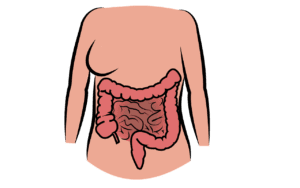According to an article in GastroEndo News, first published in Clinical Oncology News, the U.S. Food and Drug Administration (FDA) recently approved a combination of durvalumab and gemcitabine plus cisplatin for adults with either locally advanced or metastatic biliary tract cancer. Currently, the prognosis for biliary tract cancer is relatively poor. It carries a 5-15% survival rate after five years. Thus, new therapeutic options are needed to help improve patient lives and outcomes. This combination therapy could help these individuals.
The approval hinged upon data from the Phase 3 TOPAZ-1 clinical trial. During the study, researchers found that durvalumab was relatively safe, well-tolerated, and effective. When used in conjunction with chemotherapy, it reduced mortality risk by 20% compared with just chemotherapy. Additionally, the durvalumab combination seemed to increase survival rates. 25% of individuals treated with the combination treatment survived for at least two years, compared to just 10% treated with solely chemotherapy.
DrugBank describes durvalumab as:
a human immunoglobulin G1 kappa (IgG1κ) monoclonal antibody and a novel immune-checkpoint inhibitor for cancer treatment. Produced by recombinant DNA technology in Chinese Hamster Ovary (CHO) cell suspension culture, durvalumab is a programmed death-ligand 1 (PD-L1) blocking antibody that works to promote normal immune responses that attack tumour cells.
The treatment is administered intravenously.
What is Biliary Tract Cancer (BTC)?
Biliary tract cancer is a rare cancer which forms in the tubes that carry bile from the liver to the small intestine. It encompasses gallbladder cancer, as well as intrahepatic, perihilar, and distal cholangiocarcinoma. These all differ based on the specific location of the cancer within the biliary tract. Risk factors include being older in age, having diabetes or biliary cysts, a history of bile duct inflammation, obesity, radiation exposure, primary sclerosing cholangitis (PSC), and certain inherited conditions.
In many cases, symptoms do not appear until the cancer has progressed. When symptoms do appear, they can (but do not always) include:
- Jaundice (yellowing of the skin, eyes, and mucous membranes)
- Itchiness
- Dark urine and pale stools
- Abdominal pain (specifically on the right side)
- Appetite loss
- Unintended weight loss
- Nausea and vomiting
- Fever and chills
- Fatigue and general weakness





